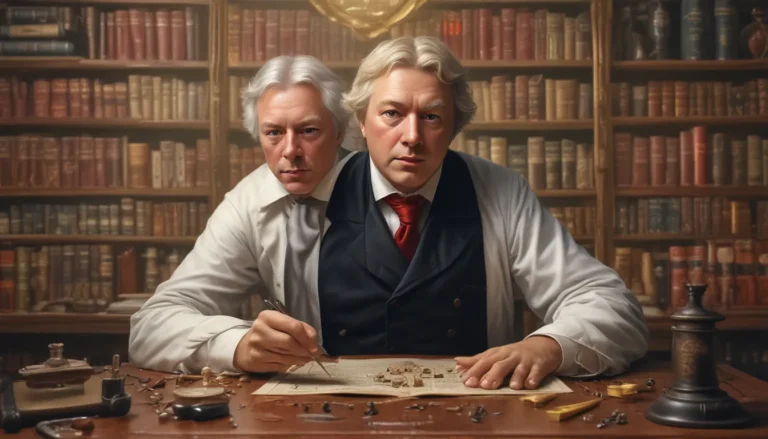The images in our articles may not match the content exactly. They are used to grab your attention, not to show the exact details in the text. The images complement the text but do not replace it.
Arthur Ashe, the trailblazing African-American tennis player, left an enduring impact on the world of sports and broader society. Born on July 10, 1943, in Richmond, Virginia, Ashe rose to fame during the racially charged 1960s and 1970s, accomplishing the remarkable feat of becoming the first African-American man to clinch the singles titles at Wimbledon, the US Open, and the Australian Open. Beyond his outstanding athletic abilities, Ashe was also a staunch advocate for social justice, striving to create opportunities for marginalized communities.
Unveiling the Early Life and Education of a Tennis Icon
Arthur Ashe’s journey began in Richmond, Virginia, where he was born on July 10, 1943. Growing up in a segregated neighborhood, Ashe discovered his love for tennis at a young age, defying racial barriers to excel in the sport. His talent and dedication paved the way for him to earn a scholarship to UCLA, where he studied business administration.
Ascending to Greatness: A Glance at Ashe’s Tennis Career
Ashe’s groundbreaking career in tennis peaked when he became the first African American male to secure the U.S. Open singles title in 1968. He continued to make history by claiming victories at the Australian Open in 1970 and Wimbledon in 1975. Known for his powerful serve and graceful playing style, Ashe captivated audiences with his remarkable skill on the court.
A Champion On and Off the Court: Ashe’s Social Activism
Beyond his athletic achievements, Arthur Ashe was a vocal proponent of civil rights and social justice. Using his platform as a prominent tennis player, Ashe fearlessly spoke out against discrimination and tirelessly worked to dismantle racial barriers in the sport. His advocacy transcended tennis, leaving a lasting impact on the fight for equality.
The Legacy of a Legend: Ashe’s Pioneering Efforts
Arthur Ashe blazed trails in the world of tennis as the first African American player selected to represent the United States Davis Cup team. His historic win at the Davis Cup in 1968 marked a pivotal moment in breaking racial barriers within the sport, setting the stage for future generations of players of color to follow.
Giving Back: The Charitable Work of a Philanthropic Hero
Embodying the values of benevolence and generosity, Ashe dedicated himself to various charitable causes throughout his life. He established the Arthur Ashe Foundation for the Defeat of AIDS, a testament to his commitment to raising awareness and funds to combat the disease.
The Literary Legacy: Ashe as an Author and Scholar
Arthur Ashe’s intellectual prowess shone through in his writing, as he penned several books sharing his experiences and insights. His works, including “Days of Grace: A Memoir” and “A Hard Road to Glory: A History of the African American Athlete,” serve as enduring testaments to his multi-faceted talents.
An Immortalized Legend: Ashe’s Induction into the Hall of Fame
In recognition of his monumental contributions to the world of tennis, Arthur Ashe was immortalized in the International Tennis Hall of Fame in 1985. His legacy was further enshrined in the International Tennis Federation’s Hall of Fame, solidifying his status as a titan in the sport.
Breaking Barriers and Inspiring Generations: Ashe’s Enduring Impact
As the first African American to win a Grand Slam title, Arthur Ashe shattered barriers and opened doors for aspiring athletes of all backgrounds. His groundbreaking achievements continue to inspire future generations of players, including legendary figures such as Venus and Serena Williams, who have followed in his trailblazing footsteps.
A Champion of Health Advocacy: Ashe’s Battle with AIDS
In 1979, Arthur Ashe faced a health crisis when he suffered a heart attack, leading to multiple bypass surgeries. Tragically, Ashe contracted HIV through a blood transfusion during one of his surgeries, sparking his remarkable advocacy efforts to raise awareness about AIDS and challenge the stigma surrounding the disease.
A Beacon of Sportsmanship and Integrity: Ashe’s Enduring Values
Throughout his career, Arthur Ashe epitomized sportsmanship and integrity, earning the respect and admiration of his peers both on and off the court. His unwavering commitment to fair play and ethical conduct served as a beacon of light in the world of sports.
The Ashe Stadium: Honoring a Tennis Icon
In tribute to Arthur Ashe’s unparalleled contributions to the sport, the main stadium at the USTA Billie Jean King National Tennis Center in New York was named the Arthur Ashe Stadium. As the largest tennis-specific stadium globally, it stands as a fitting monument to Ashe’s enduring legacy in the world of tennis.
Global Influence and International Recognition: Ashe’s Enduring Impact
Arthur Ashe’s influence transcended borders as he traveled extensively, promoting tennis and sharing his experiences with individuals from diverse backgrounds. His advocacy for social change and cultural understanding made him a respected international ambassador, leaving an indelible mark on the global stage.
A Legacy of Inspiration: Ashe’s Enduring Impact on Future Generations
Arthur Ashe’s life and achievements continue to inspire generations of athletes and activists worldwide. His dedication to social justice, advocacy for equal rights, and contributions to the sport of tennis serve as a timeless reminder of the transformative power of passion, resilience, and unwavering principles.
Conclusion: Reflecting on Ashe’s Enduring Legacy
In conclusion, Arthur Ashe’s legacy as a trailblazing tennis player, activist, and humanitarian remains an indelible part of history. From breaking racial barriers in tennis to advancing social justice causes, Ashe’s impact resonates across generations. His commitment to education, mentorship, and advocacy for equality serves as a poignant reminder that each individual possesses the power to effect positive change. As we honor the remarkable life and achievements of Arthur Ashe, let us draw inspiration from his unwavering dedication to justice, resilience, and the belief that sports can be a catalyst for meaningful social transformation.
FAQs
Q: What were some of Arthur Ashe’s notable tennis career achievements?
A: Arthur Ashe’s illustrious tennis career included three Grand Slam titles – the 1968 US Open, 1970 Australian Open, and 1975 Wimbledon. He also made history as the first African American selected for the United States Davis Cup team, clinching the championship multiple times.
Q: How did Arthur Ashe contribute to society off the tennis court?
A: Off the court, Ashe was a fierce advocate for civil rights and social justice. He leveraged his platform to raise awareness about racial inequality and apartheid in South Africa, establishing the Arthur Ashe Foundation and Learning Center to support underserved youth.
Q: What is the Arthur Ashe Courage Award?
A: The Arthur Ashe Courage Award, presented at the ESPY Awards, recognizes individuals who have demonstrated exceptional courage in challenging circumstances. Named in honor of Ashe’s legacy, the award celebrates those who embody his commitment to social change.
Q: How has Arthur Ashe’s influence extended beyond the sport of tennis?
A: Arthur Ashe’s advocacy and charitable work transcended tennis, inspiring individuals worldwide to champion social change. His enduring impact on health advocacy, education, and civil rights continues to resonate, serving as a beacon of hope for those striving for a better world.
Q: What is the Arthur Ashe Stadium?
A: The Arthur Ashe Stadium, located at the USTA Billie Jean King National Tennis Center in Flushing Meadows, New York, is the largest tennis-specific stadium globally. Dedicated to honoring Ashe’s legacy, the stadium hosts premier tennis events, including the US Open.
Arthur Ashe’s legacy perseveres as a beacon of hope and a testament to the transformative power of resilience, activism, and unwavering principles. As we commemorate his extraordinary life and achievements, let us embrace his spirit of dedication to justice, equality, and making a lasting impact on the world around us.






